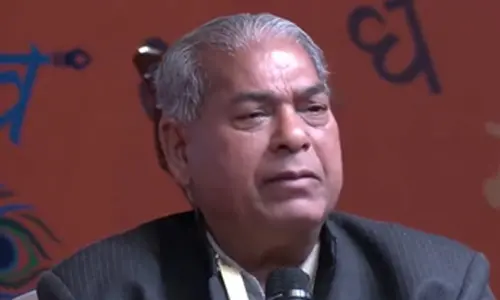Pocket money to prosperity: The importance of early financial habits

In today’s rapidly changing financial landscape, the importance of financial literacy cannot be overstated. From managing personal finances to making informed investment decisions, understanding the basics of money management is crucial for people of all ages. In this interview with Sakchi Jain, a seasoned CA, financial educator, to delve into her insights on how individuals—from students to business owners—can take control of their financial futures. Jain shares her expert advice on building good financial habits early, the importance of budgeting, and how to achieve financial independence regardless of your stage in life.
Excerpts from an interview
What is important for young people to start managing their finances early, even if their only income is pocket money?
It’s never too early to start building good financial habits. When young people begin managing their finances with something as simple as pocket money, they’re laying the foundation for their financial future. Starting early gives them the advantage of time, which is crucial when it comes to saving and investing. By learning the basics of budgeting, saving, and investing now, they set themselves up for a lifetime of financial stability.
There are so many resources available today—online courses, finance blogs, and YouTube channels—that make it easy to understand financial concepts. Reading books like *The Psychology of Money* can also be incredibly beneficial in shaping a healthy financial mindset.
What are the key financial strategies employees should focus on?
The first step is to establish a solid budget. Understanding where your money is coming from and where it’s going is fundamental to managing your finances effectively. Once you have a clear picture of your income and expenses, it’s important to set aside a portion of your income for savings and investments. Many companies offer retirement plans like the Employees’ Provident Fund (EPF), and if your employer matches contributions, that’s a benefit you should definitely take advantage of.
One common mistake is lifestyle inflation—spending more as you earn more. It’s important to resist this temptation and continue living within your means. Instead of increasing your spending, use that extra income to boost your savings, investments, or pay off any debts faster. Building an emergency fund with 3-6 months’ worth of living expenses is also crucial. This provides a safety net in case of unexpected events like job loss or a medical emergency. Additionally, having adequate health and life insurance is essential for protecting yourself and your family.
For those who run their own businesses, what financial practices should they prioritize?
Business owners face unique financial challenges, so it’s critical to keep personal and business finances separate. This separation helps maintain clarity and control, ensuring that both areas are managed effectively. Maintaining a healthy cash flow is another priority. Regularly monitoring your income and expenses, and setting aside funds for taxes throughout the year, can prevent financial stress. It’s also wise to build a business emergency fund to manage periods of low revenue or unexpected expenses.
On the personal side, business owners should pay themselves a regular salary to manage household finances effectively. Like any employee, they should focus on building an emergency fund, saving for retirement, and investing in health and life insurance. While investing in the business is key, keeping an eye on personal financial health is just as important. Regularly reviewing business performance and adjusting strategies as needed ensures long-term stability and success.
For Gen Z
Gen Z has a tremendous advantage with time on their side. Starting to invest early is one of the most powerful moves they can make toward financial independence. Understanding the basics of budgeting, saving, and avoiding unnecessary debt is crucial at this stage. Even if they’re earning just a little, they should focus on setting aside a portion of their income for savings and aim to build an emergency fund with 3-6 months’ worth of living expenses. Investing early, even in small amounts, can have a huge impact over time. Low-cost index funds or mutual funds are great starting points. Additionally, enhancing their skills and education will improve their earning potential over time, giving them more financial flexibility.
















